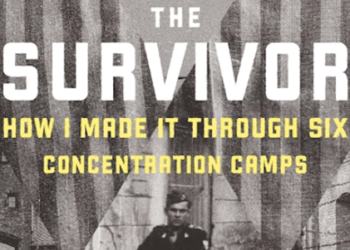Reviewed by NEAL GENDLER
London bachelor Téo Erskine’s monthly visit to his ailing father Vic turns into an unwelcome surprise: custody of smart, stubborn, rambunctious Joel, not yet three years old.
Téo got Joel, for whom he’s occasionally babysat, when Lia Woods, the woman he long wanted to love him, asked him to meet her in a park and to take care of Joel for the day.

Smart, attractive, acerbic Lia was the lone girl in Téo’s longtime gang in London’s borough of Enfield, origin and name of Britain’s standard infantry rifle in both world wars.
Téo (short for Téodor) agreed. Later in the day, he called Lia with a question, leaving a message. Getting no response, he left more messages. No replies.
That night, police found Lia dead.
She had no living relatives, Joel’s father was unknown, and Joel was, at the moment, in Téo’s family home.
Government social workers, Téo, Vic and Sibyl Challis, the new rabbi of Enfield Progressive, sat at Vic’s kitchen table to discuss Joel’s future.
Recalling his terror at having been placed in an orphanage, Vic was adamantly against letting that happen to Joel.
The group “had gathered that Téo was Lia’s most responsible friend,” making him “one of the better bets” until a suitable foster home was found, which would be difficult.
For one thing, Téo “was of the same religion as Joel.” Huh? We learn that despite unlikely last names, Téo Erskine and Joel Woods are Jews.
So is Téo’s lifetime friend, Ben Mossam, a handsome, athletic bon vivant — very rich with the money and mansion of his absentee parents.
Vic is a Scot who’d married a Sephardic Jew, accompanied her to shul weekly and continued to go after she died despite never officially becoming Jewish.
Tall, gregarious Ben, who immediately draws attention, plays aggressive football (apparently soccer), throws parties, gambles at casinos and plays cards at home with his pals of lesser means. “Ben Mossom is pharaoh in this crowd,” says London author Tom Lamont. Inexplicably, this irreligious pharaoh always wears “one of the flat Jewish skullcaps, a kappel.”
At his favorite casino one day, Ben looks into the chaplain’s room. It’s Sibyl’s shift and Ben steps in, saying he’s “technically a congregant,” his parents having financed the shul.
Sibyl asks: “You cover your head, yet you don’t come to shul. Explain that to me.”
Ben says he likes people knowing he’s a Jew. It’s “normal to me, a mode, what I am in my bones.”
He mentions seeing her leading Lia’s funeral. They talk about Joel. Joel, Ben says, has some of his own parents’ features. Ben finds the decade-older rabbi hot. He starts asking her out. She’s attracted.
Téo agrees to take Joel as his ward for a time, gets compassionate leave from his job of instruction in road safety, and stays with Vic. Téo discovers that Joel consumes most of his life.
He figures out Joel’s odd speech, calms his frequent tantrums, accommodates his unusual food demands, plays Joel’s plastic-creature war games on the floor, changes nappies (Brit-speak for diapers, among untranslated terms in this British novel), figures out how to get Joel to go to bed, and slowly wins Joel’s intermittent acceptance.
Months go by, and Téo and Vic become fond of Joel, but Téo makes Ben take in Joel and returns to work.
Vic, though increasingly impaired by his Parkinson’s-like ailment, decides he wants custody of Joel.
After that, everything unravels in one direction but comes together in another.
Annoyingly numbered only on right-hand pages, Going Home is an unusual, imaginative story very well told. A bit of patience is required to get into it, but soon you’re in deep and glad of it.
***
Neal Gendler is a Minneapolis writer and editor.
(American Jewish World, March 2025)





















